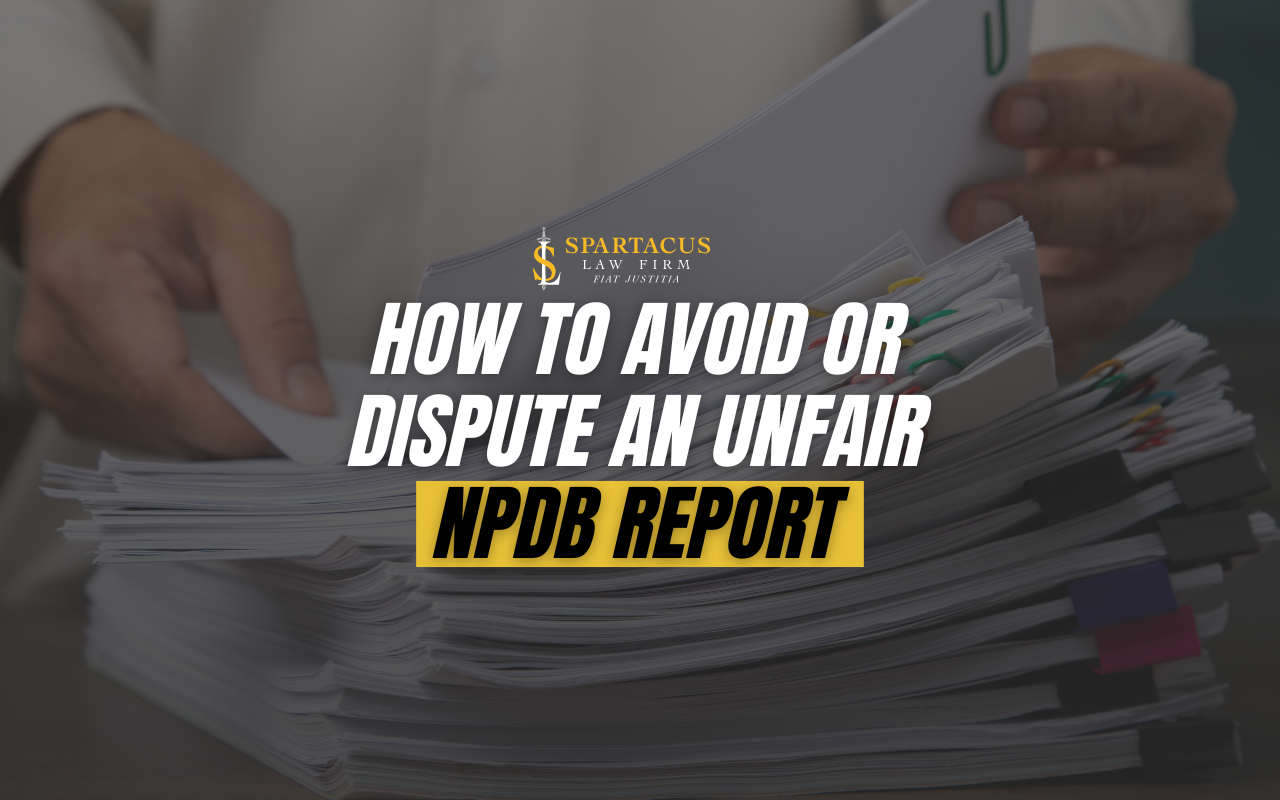As a law firm specializing in criminal defense in Las Vegas, Spartacus Law Firm understands that facing criminal charges can have far-reaching implications on various aspects of life, including your career. One common concern for individuals charged with domestic violence is whether they can pursue or maintain a teaching career in Nevada. In this article, we’ll address this pressing issue, providing you with the necessary information and guidance. For more information and legal advice, contact our experienced Nevada teacher license defense lawyers at the Spartacus Law Firm today.
Understanding Domestic Violence Charges in Nevada
Domestic violence is a serious offense in Nevada. It encompasses a range of abusive behaviors within domestic relationships, such as spouses, cohabitants, or dating partners. Under Nevada Revised Statutes (NRS) 200.485, domestic violence can include physical violence, emotional abuse, and even economic control. The consequences of a domestic violence conviction can be severe, affecting not only your personal freedoms but also your professional life.
The Impact of a Domestic Violence Charge on Teaching Credentials
Background Checks
Teachers in Nevada are subject to rigorous background checks as part of the hiring process. These background checks typically involve fingerprinting and a thorough review of any criminal history. If you have been charged with domestic violence, this information will likely appear on your criminal record, which can significantly impact your ability to secure a teaching position.
Licensing and Certification
To teach in Nevada, you must obtain a teaching license from the Nevada Department of Education (NDE). The NDE has strict guidelines regarding criminal offenses and teacher licensure. A domestic violence charge, particularly if it leads to a conviction, can pose a significant barrier to obtaining or renewing your teaching license.
Moral Character Requirement
Nevada places a strong emphasis on the moral character of its educators. The NDE evaluates applicants’ moral character during the licensure process. A domestic violence charge raises questions about an individual’s ability to serve as a positive role model and maintain a safe and respectful classroom environment.
Nevada’s Commission on Professional Standards in Education
The Commission on Professional Standards in Education (COPS) serves as the regulatory authority responsible for establishing licensing standards, issuing teaching licenses, and overseeing the discipline of educators. Comprising eleven appointees from the Nevada Governor, the commission includes a diverse group of educators, from elementary teachers to college professors and school administrators. This is the body that will review your case if you face criminal charges and seek to apply for a teaching license or are subject to disciplinary action due to such charges.
Domestic Violence Charge vs. Conviction
It’s essential to distinguish between being charged with domestic violence and being convicted of the offense. While a charge indicates an accusation, a conviction represents a finding of guilt by a court. The impact on your teaching career can vary significantly based on whether you are merely facing charges or have been convicted.
Being Charged with Domestic Violence
If you have been charged with domestic violence, it doesn’t automatically mean you are guilty. The legal process will determine your guilt or innocence. However, even an ongoing charge can raise red flags for potential employers and licensing authorities. It may lead to delays in the hiring process or result in a conditional offer of employment pending the resolution of your case.
Being Convicted of Domestic Violence
A domestic violence conviction carries more severe consequences. It can result in fines, probation, mandatory counseling, and even jail time. Additionally, it can have a lasting impact on your criminal record, making it challenging to secure teaching positions in Nevada. Convictions are often viewed more seriously by employers and licensing boards, as they indicate a proven offense.
Steps to Take if You Are Facing Domestic Violence Charges
Seek Legal Counsel
When facing domestic violence charges, it is crucial to seek legal counsel immediately. A skilled Las Vegas criminal defense attorney from Spartacus Law Firm can provide you with the necessary guidance and representation to protect your rights and build a strong defense.
Understand the Legal Process
Familiarize yourself with the legal process and the specific charges against you. Your attorney can explain the charges, potential penalties, and available defenses. Understanding the process will help you make informed decisions and actively participate in your defense.
Explore Possible Defenses
Your attorney will work with you to explore possible defenses against the domestic violence charges. Common defenses include self-defense, lack of evidence, false accusations, and procedural errors. Building a strong defense can increase your chances of a favorable outcome and reduce the impact on your teaching career.
Consider Plea Bargains
In some cases, negotiating a plea bargain may be a viable option. A plea bargain can result in reduced charges or penalties, minimizing the long-term impact on your record. Your attorney can negotiate with the prosecution to secure the best possible outcome for your case.
Navigating the Licensing Process with Domestic Violence Charges
Disclosing Your Charges
When applying for a teaching license in Nevada, it is essential to be honest and transparent about your charges. Failing to disclose your criminal history can result in severe consequences, including denial of your application or revocation of your license. Be prepared to provide detailed information about the charges and any steps you have taken to address the situation.
Character References
Character references can play a vital role in demonstrating your moral character and commitment to personal growth. Obtain letters of recommendation from individuals who can vouch for your integrity, responsibility, and dedication to teaching. These references can help mitigate the impact of the charges on your application.
Rehabilitation and Remediation
If you have been convicted of domestic violence, pursuing rehabilitation and remediation efforts can demonstrate your commitment to personal improvement. Completing court-ordered counseling, anger management programs, and community service can show that you are taking steps to address any underlying issues and prevent future incidents.
Potential Repercussions for Current Educators
If you are already an educator in Nevada and facing domestic violence charges, you may still face significant repercussions, including:
Suspension or Termination
School districts and educational institutions take domestic violence charges seriously. Even if you have not been convicted, the mere existence of charges can lead to suspension or termination pending the outcome of your case. Employers have a duty to ensure the safety and well-being of students and staff.
Administrative Review
The NDE may conduct an administrative review of your teaching license if you are facing domestic violence charges. This review can result in disciplinary actions, including the suspension or revocation of your license. It is crucial to cooperate fully with the review process and provide any requested documentation.
Professional Reputation
Domestic violence charges can damage your professional reputation and erode trust among colleagues, students, and parents. Rebuilding your reputation may require time, effort, and a demonstrated commitment to personal growth and accountability.
Frequently Asked Questions
Can I Apply to Be a Teacher in Nevada With a Criminal Record?
The Commission on Professional Standards in Education holds the authority to deny teaching licenses to individuals convicted of certain offenses, including:
- Felonies
- Crimes of moral turpitude, such as violent crimes, fraud, or theft
However, the commission may overlook some teachers’ criminal records if it is determined that the conviction is not relevant to the teaching role.
If you’re aspiring to become a teacher in Nevada and have a criminal record, it is advisable to consult with a Nevada professional license defense attorney before submitting your application. There may be options available to seal your criminal record or to strategize your application effectively with the assistance of your defense team.
What Leads to Disciplinary Action Against a Teacher in Nevada?
As a teacher in Nevada, you may encounter disciplinary action if convicted of any of the following offenses:
- Any felony
- Crimes involving moral turpitude, such as violent offenses, theft, and fraud
- Any sexual offenses involving a student
Additionally, the commission can take disciplinary measures against current teachers for misconduct, including immoral or unprofessional behavior.
Contact Our Las Vegas Teacher License Defense Lawyer Today
Facing domestic violence charges can be a daunting and stressful experience, especially when it threatens your teaching career in Nevada. However, it is essential to remember that being charged does not equate to automatic guilt. Seeking legal counsel, understanding the legal process, and actively participating in your defense are critical steps to protect your rights and future.
If you are a teacher or aspiring educator facing domestic violence charges, Spartacus Law Firm is here to help. Our experienced Las Vegas criminal defense attorneys specialize in handling domestic violence cases and can provide you with the support and representation you need. Contact us today for a consultation and take the first step towards safeguarding your teaching career.






